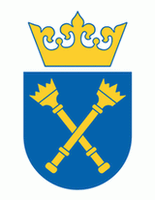
The Jagiellonian University educates on the three levels: Ordinary, Masters, and Doctoral, following the principles of the Bologna Process. There are well over a hundred degrees and specialties available in Polish, as well as over a dozen in English. The European Credit Transfer System (ECTS) has been implemented in all courses and specialties, enabling trouble-free linking of studies at UJ with studies in other European countries. Together with the development of co-operation with a number of universities worldwide, this has enabled a great increase in student mobility.
Modern University
The structure of the Jagiellonian University is unique in Poland. Among the 16 faculties, there are three which comprise the Collegium Medicum: The Faculties of Medicine and Dentistry, Pharmacy, and Health Protection. These three were separated from the University in 1950, following the Soviet model, and reincorporated in the Alma Mater in1993. Until recently, the Jagiellonian was the only Polish university with medical faculties, although currently the Nicolaus Copernicus University in Toruń also has them.
Ever more frequently there are foreign-language lectures, in addition to lectures given by foreign academics included in study programmes, for instance in the sphere of mathematics at the Faculty of Physics, Astronomy, and Applied Computer Science, within the framework of the School of Foreign Law (German, American, and French) at the Faculty of Law and Administration, or the School of Medicine in English at the Jagiellonian University.
The teaching of foreign languages has been reformed with the creation of the Jagiellonian Language Centre. Students of the Jagiellonian University must complete their studies with knowledge of two foreign languages at intermediate level at least. It is worth pointing out at this juncture that a course in English for Blind and Partially-sighted Students has been set up. These lectures, led by a lecturer trained in the UK, include the specifics of work with disabled students.
 Jagiellonian University in Kraków
Jagiellonian University in Kraków























